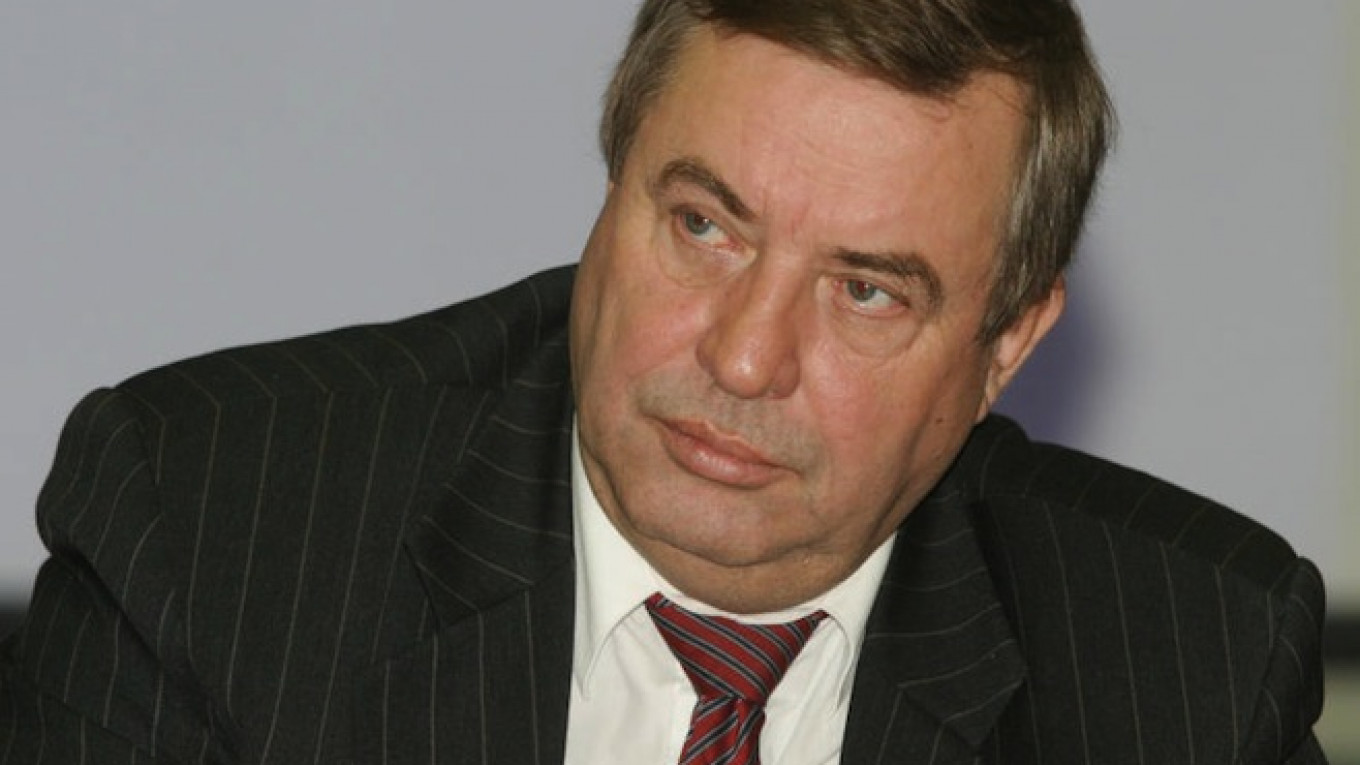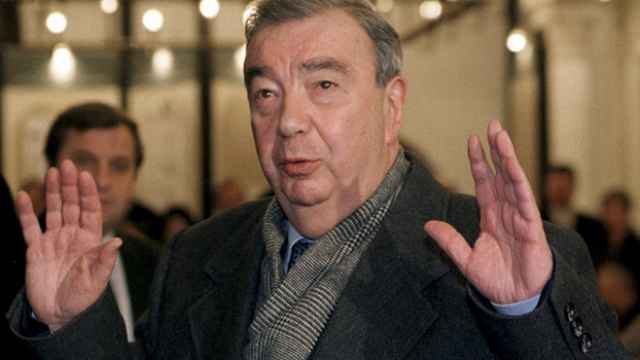Former State Duma speaker Gennady Seleznyov, who was kicked out of the Communist Party for urging reforms and refusing to step down from his parliamentary position, has died. He was 67.
Seleznyov died in his Moscow home on Sunday night from an unspecified illness, a few days after his health took a sharp turn for the worse, his son-in-law Andrei Andreyev said, Interfax reported.
A graduate of the journalism school at Leningrad State University, Seleznyov was the editor-in-chief of Komsomolskaya Pravda newspaper from 1980 to 1988, and of Pravda newspaper from 1991 to 1993.
Seleznyov was a member of the Communist Party of the Soviet Union, and, following the 1991 Soviet collapse, of the Communist Party of Russia, on whose ticket he was elected to the State Duma. Seleznyov served as the chamber's speaker from 1996 to 2003.
He opposed many of former President Boris Yeltsin's policies, but unlike the vehement rhetoric of many of his party comrades, Seleznyov's remarks were often tinted with light irony.
Much of that irony was directed at the State Duma itself.
"All of our multifaceted lawmaking activity … boils down to the law on beekeeping," Seleznyov said in a 1999 speech summarizing the results of the preceding four years of parliament's work.
In a chamber whose sessions were marked by frequent spats, angry outbursts and an occasional fistfight, Seleznyov patiently admonished lawmakers like rowdy schoolchildren, sometimes telling them to step outside to settle their differences.
"There is noise in the chamber, as if in a public bath house," he told a State Duma session in 2002. "There they are standing with their backs to the podium, without a care. We are not in first grade of school after all."
After the Communist Party lost many of its seats in the Duma in 2001, Seleznyov called for reforms within the ranks, while party leadership tried to replace him as parliament speaker. Seleznyov refused to step down and was expelled from the party.
An early supporter of Putin, Seleznyov was also a member of the Russian Security Council in 1999-2004.
He lost his parliamentary speaker position after the United Russia party won a majority of seats in the 2003 elections.
Contact the author at newsreporter@imedia.ru
A Message from The Moscow Times:
Dear readers,
We are facing unprecedented challenges. Russia's Prosecutor General's Office has designated The Moscow Times as an "undesirable" organization, criminalizing our work and putting our staff at risk of prosecution. This follows our earlier unjust labeling as a "foreign agent."
These actions are direct attempts to silence independent journalism in Russia. The authorities claim our work "discredits the decisions of the Russian leadership." We see things differently: we strive to provide accurate, unbiased reporting on Russia.
We, the journalists of The Moscow Times, refuse to be silenced. But to continue our work, we need your help.
Your support, no matter how small, makes a world of difference. If you can, please support us monthly starting from just $2. It's quick to set up, and every contribution makes a significant impact.
By supporting The Moscow Times, you're defending open, independent journalism in the face of repression. Thank you for standing with us.
Remind me later.






